As a way of cleaning house, I make some admissions.
First of all, surviving homelessness is not an art. That is simply and ridiculously untrue, even though I made that argument upon the vigorous belief in the benign, albeit false, premise that I am of special birth as a Midwesterner and that too much suffering has no reason to visit anyone from that part of the world.
I thought that I --- derived from the Land of Lincoln and well-educated --- I, among the millions and millions of other people across the globe who live in favelas, ghettos, squatter settlements, tent cities, non-profit shelters, and refugee camps, would be spared the ignominy, social isolation, and dire poverty engendered by homelessness.
Now thoroughly chastised by experience, I can report to you that there is nothing that can make homelessness anything other than it is: a nightmare existence. There is no loneliness like it. It is the dark of dark. One should rather be dead, and I cannot make this any nicer for you.
Poverty is not so painful in itself, though it eliminates most all opportunity to experience the kind of distraction I would most enjoy --- the opera, the symphony, gourmet dining. Getting dressed in public washrooms, reduced to listening to my tiny, battery-run radio, and eating smoked salmon and olives in the cab of my truck are nowhere close to the sublimity and elegance of being served by a wait staff in tuxedos in a room sparkling with silver, china, mirrors, and crystal, clear notes of glass and conversation muted by velvet drapes and thick carpet. Rather than ever being made to feel self-conscious, I always felt enlarged in such a setting, my sense of well-being tuned to the distinctive sounds of palatial eating.
Shame is unavoidable. Being without a home is irregular, however common it may become with the economy in full downward tilt. I have dared to tell a few people the details of my existence, but it is a very risky proposition generally. Sadly, while one hopes for the best, one must always expect the worst from people.
For example, there is nothing so humiliating as a police officer waiting for you to finish dressing before he approaches. In this case, most recently, it was a woman wearing the badge. Those Ford Crown Victorias driven by the police make no sound at all. Their tires, unlike the ones everyone else uses, do not seem to create friction on asphalt, concrete, or earthen surfaces and glide over twigs, plastic trash, and curbs. There is no hum or whirring of mechanical parts. You only know the police have arrived if you see them.
Of course, I am vigilant as I roll up my bedding and get dressed in the cab of my truck. I keep an eye out here and there, but then one might ask what a person would do seeing the police drive up if one is not, say, inclined to start a speed chase. There is nothing to do, even though I admit to getting situated behind the wheel. By then, however, the police officer was at my door and suggested that I was not going anywhere. She had already radioed her office and was in the process of checking my license plate.
I was not alone in this. I was part of a caravan of homeless vehicle owners who circled the wagons after dark in a quiet parking lot near one of the boat launches. My truck more than fit in and was even eclipsed in singularity by several clumsy, tired-looking RV's customized with duct tape and cardboard to replace missing glass in windows and bicycles and other objects tied on (not mounted) to the back. Add that to the squeaking, creaking, and rattling of every part and some unidentifiable, never-before-heard sounds. As usual, wheezing, coughing engines and the occasional backfire riddled the morning air, which alone might have been enough to set a cop off on a frenzy of ticket-writing, though that, as annoying as it may be, is not illegal.
"You know it's illegal to sleep in your truck?" The question had the inflection of the rhetorical, but I offered my best explanations. The officer asked for my driver's license. I handed it over, and she returned to her car. I got back in my truck and waited. Impatient to get on with my day and anxious about where I was now going to sleep, reviewing in my mind what place might be left, I walked back to the police car to collect my license.
"Did someone complain?"
"You mean, do people complain?! They complain all the time! You see these signs out here?" The officer pointed to the sign posted a few feet away in red letters, "No parking between 2 a.m. and 4 a.m," absurd and meaningless to anyone but the homeless.
"You know, I'd like to live out here in a car with my three kids instead of paying $1700 a month for a shit hole, with nothing left over," the officer's voice was dark with resentment. She paused. I said nothing. "If I see you out here, or on any city street again, I am going to arrest you and take your truck." The officer handed back my license. I returned to my vehicle, barely feeling my feet touch the pavement as I went. I was having that peculiar homeless experience of disembodiment, of being one of the undead, as the homeless truly are.
We do not usually think of the homeless as people whose human rights have been violated, but threatening to make matters worse for them by towing their vehicle and thereby forcing them out of that last vestige of civilized living so that they cannot get back and forth to work and must sleep on the ground or under a bridge is depraved. As a culture, we are collectively allowing people to be stripped of every possession, save their skin, for crimes as insignificant as sleeping.
Naturally, I have often felt sorry for the police who have to carry out the nasty deeds assigned to them by a fraction of the public, those who have time to attend City Council or neighborhood meetings and lobby for their own narrow interests. Of course, for example, vacation rental owners want the view of the Bay from their front windows to be unobstructed by homeless people and ugly vehicles, but their solutions to the problem take too great a toll upon an essentially harmless class of people.
We treat dogs better. In fact, I see Wild Animal Rescue trucks on a regular basis. I called Wild Animal Rescue myself one day when I noticed a seagull struggling with a broken wing. If the homeless look radioactive, unstable, and slightly necrotic, perhaps they are just not getting enough sleep; but be warned, there is no one to call.
Hello world!
-
Welcome to WordPress. This is your first post. Edit or delete it, then
start writing!





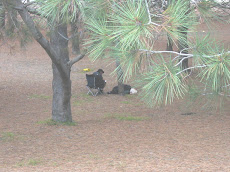


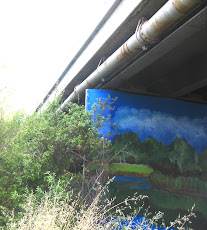
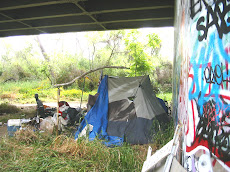







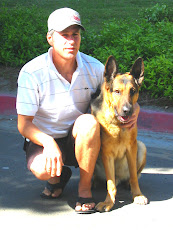
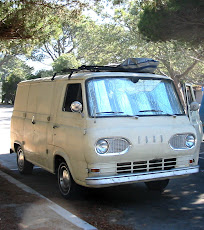
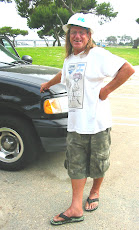









I felt such despair for you after reading this post. The police officer was doing her job, but her comments to you about her rent were misplaced. People are so mired in their own lives that they can't inhabit the much harsher reality of someone else's life.
ReplyDeleteI think that your letting people know about these things through your blog is very valuable, and I hope you keep it up.
Dear Orchid64,
ReplyDeleteThank you for stopping by to read and comment. I would like to think that those of us who are writing about homelessness are making an impact.
However, I am afraid American culture is just too atomized by now, with few geographical communities left that might feel enough cohesion to act together to alleviate the burden of others around them.
It is not that people do not care: I believe that police woman cared, but she did not feel there was anything constructive she could do. She could feel my pain only by feeling hers. Not graceful or pretty, but I understood her. I believe the resentment I heard in her tone of voice was also frustration at having to be the messenger.
Kerry
ReplyDeletePlease contact me I wsih to talk to you
Jon
rangerjlb@yahoo.com